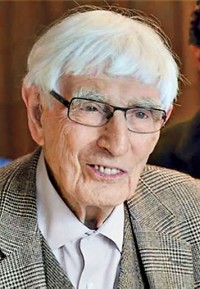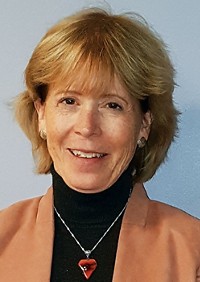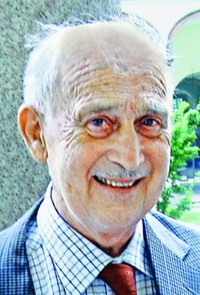Advertisement
Grab your lab coat. Let's get started
Welcome!
Welcome!
Create an account below to get 6 C&EN articles per month, receive newsletters and more - all free.
It seems this is your first time logging in online. Please enter the following information to continue.
As an ACS member you automatically get access to this site. All we need is few more details to create your reading experience.
Not you? Sign in with a different account.
Not you? Sign in with a different account.
ERROR 1
ERROR 1
ERROR 2
ERROR 2
ERROR 2
ERROR 2
ERROR 2
Password and Confirm password must match.
If you have an ACS member number, please enter it here so we can link this account to your membership. (optional)
ERROR 2
ACS values your privacy. By submitting your information, you are gaining access to C&EN and subscribing to our weekly newsletter. We use the information you provide to make your reading experience better, and we will never sell your data to third party members.
People
James Flack Norris Award In Physical Organic Chemistry
Recipients are honored for contributions of major significance to chemistry
by Elizabeth K. Wilson
March 2, 2009
| A version of this story appeared in
Volume 87, Issue 9
Sponsored by the ACS Northeastern Section
Chemical radicals, with their unpaired electrons, are crucial—and detrimental—to many biological processes, from their involvement in DNA damage and repair to their roles in aging and numerous diseases. Yet their fleeting, reactive nature makes them difficult to study.
Bernd Giese, professor at the University of Basel, in Switzerland, has made a career of investigating and harnessing these reactions. He is receiving the award for his contributions to the field of bioorganic radical chemistry.
Giese is perhaps best known for his work on electron transfer reactions in DNA and peptides. He examined the oxidation of the DNA base guanine and proposed a now widely accepted mechanism in which electrons “hop” from base to base in DNA strands, as well as from aromatic amino acid side chains in peptides. He demonstrated that single electrons can repair radiation-damaged thymine dimers.
Among other accomplishments, he developed the “Giese reaction,” a process involving radicals in which alkyl tin hydrides are used to form carbon-carbon bonds between alkyl halides and olefins. While working on this project, he also observed that the stereochemistry of radical reactions follow the same rules as reactions between nonradicals.
In recent years, Giese has been studying the behavior of the cyclic dimer of guanosine monophosphate (c-di-GMP). This biomolecule was first known as an inhibitor of cellulose synthase in cellulose-producing bacteria. It is now recognized as a messenger molecule used by numerous bacteria in myriad processes, including the regulation of biofilm formation and the ability to infect other organisms. Giese and his colleagues have probed the mechanisms by which diguanylate cyclase enzymes produce c-di-GMP in cells and developed new methods for synthesizing c-di-GMP and its analogs.
Giese, 67, was born in Hamburg, Germany. He received a Ph.D. from the University of Munich in 1969 and was awarded habilitation in 1976 by the University of Freiburg. He did pharmaceutical research at BASF in Ludwigshafen, Germany, from 1969 to 1971; he spent time at the University of Münster from 1971 to 1972 and at the University of Freiburg from 1972 to 1977. Giese then moved to the Technical University of Darmstadt as a full professor. In 1989, he went to the University of Basel, where he has been since.
Giese has written several books, including “Radicals in Organic Synthesis,” published in 1986. He has served as editor and on the editorial board of several journals, including Synlett, Chemical Reviews, and Accounts of Chemical Research. He has been a member of the American Academy of Arts & Sciences since 2003. His awards include the Tetrahedron Prize for Creativity in Organic Chemistry in 2005 and the German Chemical Society’s Emil Fischer Medal in 2006.
In the past two decades, Giese has helped “transform the chemistry of free radicals from a rather neglected byway to one of immense significance in synthesis and biology,” notes Athelstan L. J. Beckwith, emeritus chemistry professor at Australian National University, in Canberra.
Giese will present the award address before the Division of Organic Chemistry.






Join the conversation
Contact the reporter
Submit a Letter to the Editor for publication
Engage with us on Twitter